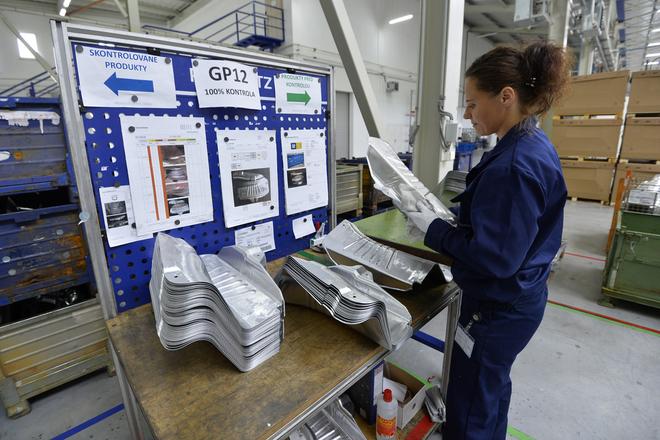More information about the Slovak labour market
Please see our Career & Employment Guide.
This year’s edition was published also thanks to support from the general partner of the guide, the executive search firm - Amrop.
The number of foreigners working in Slovakia in recent years has been increasing according to official statistics of the Central Office of Labour, Social Affairs and Family. In December 2015, 25,537 foreigners were working in Slovakia. Exactly one year later, that figure was 35,090.
The reality in human resources is that the number of vacancies is higher than the number of suitable candidates. The sources of applicants are limited in several sectors, like automotive or gastronomy. If we generalise boldly, employers most frequently fill the more qualified and top positions with people from countries that perform better economically than Slovakia, while less qualified employees come from countries with lower GDP.
International companies use internal expats for expert jobs or for various projects. In Slovakia, we are used to the fact that expats commonly serve in high managerial positions or in positions that are crucial for the company. This is also the simplest way to win over proven international experts, as the employee knows the corporate culture, working methods and environment.
“Within international projects, I have already worked in Denmark, Germany; and currently, I am in Slovakia,” says Anders, who works for an international facility company. “However, the company has secured conditions for me – it covers all the costs for me and my family, arranges the administrative side and solves all my needs.”
Anders considers this above-standard care a necessity. If the employer failed to offer him the possibility to take his family along, he would probably not even consider coming to Slovakia.
“Slovakia is beautiful, and the people are really very friendly,” he said. “But I miss the internationality here. I could not even open a personal account without knowing the local language.”
What he misses most are language skills at offices, but also in medical facilities. His employer secured a Slovak language teacher for him.
The rotation of internal expats is simpler for the company. The costs of these employees are in many cases higher, but the process of employing a foreigner is typically easier.
Companies with bilingual internal communication do not hesitate to involve foreign employees. It is this international environment that makes such employers so attractive for foreigners.
After arriving to Slovakia, Jacob planned to continue his employment in an international network of hotels.
“I worked hard to become the head of reception in Scotland,” he said. “After arriving to Slovakia, the same hotel network offered me a job in the laundry, as I did not speak Slovak. They did not even seek other possibilities; they closed the door on me.”
It took him almost three months to find a job in Slovakia, in a shared service centre.
“For me as a foreigner, this was the only chance to get employed in an interesting job position without the knowledge of Slovak,” he says. “The professional approach of the HR department helped me a lot. They offered me several positions and, most of all, they gave me the chance to decide.”
He appreciates the individual approach and willingness to seek solutions: they advised him what documents are necessary, and to what office to take them.
The HR department’s knowledge of legislative procedures and administration is undoubtedly a key factor. According to Emiliano from Brazil, “a foreigner has only minimum awareness of what they need to secure, and a helping hand at offices is rather an exception than a rule”.
The HR department is the source of trustworthy information for a foreign employee. But if competencies are absent here – the knowledge of one’s duties stemming from the employment of foreigners, and especially from third countries it can have serious consequences: from losing the trust of the employee in the employer, to a withdrawal of working permission.
Production companies are in sharp contrast. The requirements for employees are almost exclusively directed towards production staff, and there is no sense in denying that there is a relatively high rate of fluctuation. In the case of a bigger volume of orders, it is almost a superhuman achievement to cover the requirements with employees from Slovakia; and many employers are open to the possibility of hiring foreigners. When acquiring them, specialised agencies or recruitment centres in the target country are often used - those that are familiar with the labour markets and play a key role in communication.
“In Romania, we had an interview where the job was presented to us. After our arrival to Slovakia, we learned the wage conditions were suddenly lower.”
This is part of the experience of Liliana and Sorino from Romania who work here as production operators.
“Nobody in the company spoke Romanian, they did not have sufficient accommodation for us, and we got contracts only after three days,” they say. “Ultimately, everything ended well, but the beginnings were – to put it mildly – very chaotic.”
Paulína Martanovičová is division director at HRQ SK
Author: Paulína Martanovičová


 Illustrative stock photo (source: TASR)
Illustrative stock photo (source: TASR)